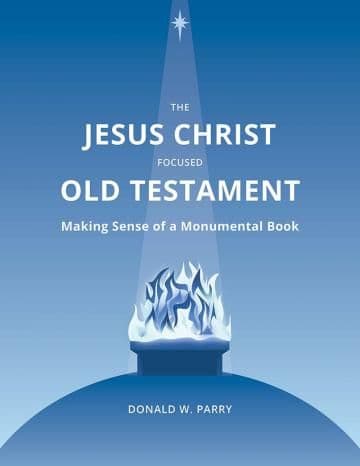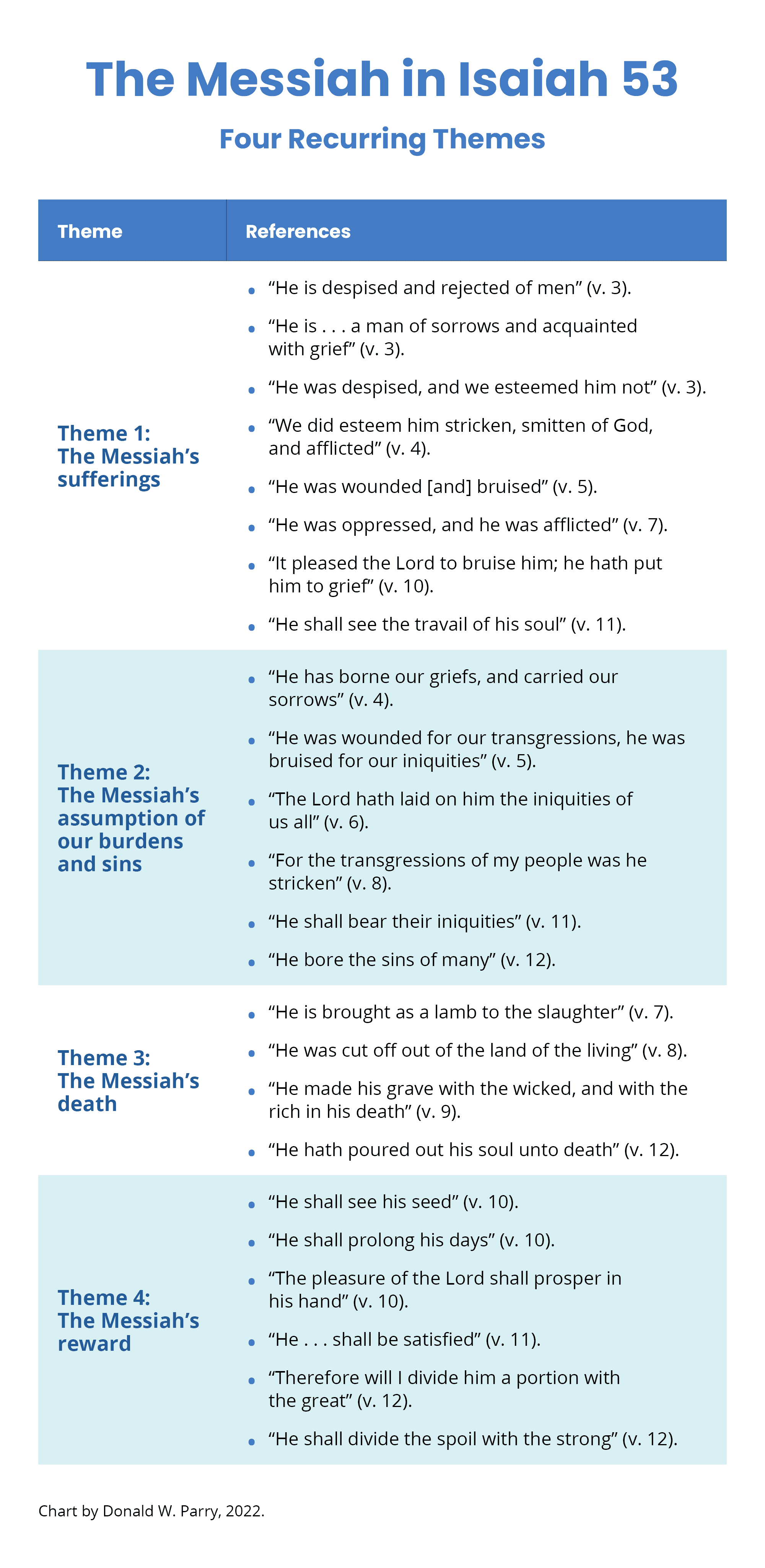Book
56 Chapters

Often called the “Song of the Suffering Servant,” Isaiah 53 is one of the most prominent Old Testament passages that prophesy about Jesus Christ’s atoning sacrifice. Philip clearly tells us that the servant described here is Jesus Christ (Acts 8:26–35). Matthew, Peter, and Paul also understood that at least portions, if not all, of this chapter referred to Jesus (see Matt. 8:17; 1 Pet. 2:24–25; Rom. 4:25).
Isaiah 53 sets forth four recurring themes:
1. The Messiah’s sufferings. These pertain to what He suffered during the persecutions of His mortal ministry but more especially to the sufferings of the last twenty-four hours of His life.
2. The Messiah’s assumption of our burdens and sins. Isaiah provides great details regarding this subject with his use of specific words such as “iniquities,” “transgressions,” and “sins.” Note that in addition to bearing our sins, Jesus also bore our griefs and sorrows.
3. The Messiah’s death. Note again Isaiah’s specificity with his words that prophesy of Jesus’s death—“slaughter,” “cut off from the living,” “his grave,” and “death” (twice).
4. The Messiah’s reward. Isaiah provides six separate prophetic statements about the Messiah’s reward. Note that the reward does not pertain to gold, silver, or treasures but to eternal blessings.
These four themes are intermingled throughout the chapter and provide very detailed descriptions of the Lord’s sufferings and Atonement.
Themes | References |
|---|---|
Theme 1: The Messiah’s sufferings | “He is despised and rejected of men” (v. 3). “He is . . . a man of sorrows and acquainted with grief” (v. 3). “He was despised, and we esteemed him not” (v. 3). “We did esteem him stricken, smitten of God, and afflicted” (v. 4). “He was wounded [and] bruised” (v. 5). “He was oppressed, and he was afflicted” (v. 7). “It pleased the Lord to bruise him; he hath put him to grief” (v. 10). “He shall see the travail of his soul” (v. 11). |
Theme 2: The Messiah’s assumption of our burdens and sins | “He has borne our griefs, and carried our sorrows” (v. 4). “He was wounded for our transgressions, he was bruised for our iniquities” (v. 5). “The Lord hath laid on him the iniquities of us all” (v. 6). “For the transgressions of my people was he stricken” (v. 8). “He shall bear their iniquities” (v. 11). “He bore the sins of many” (v. 12). |
Theme 3: The Messiah’s Death | “He is brought as a lamb to the slaughter” (v. 7). “He was cut off out of the land of the living” (v. 8). “He made his grave with the wicked, and with the rich in his death” (v. 9). “He hath poured out his soul unto death” (v. 12). |
Theme 4: The Messiah’s Reward | “He shall see his seed” (v. 10). “He shall prolong his days” (v. 10). “The pleasure of the Lord shall prosper in his hand” (v. 10). “He . . . shall be satisfied” (v. 11). “Therefore will I divide him a portion with the great” (v. 12). “He shall divide the spoil with the strong” (v. 12). |
Book
56 Chapters

Items in the BMC Archive are made publicly available for non-commercial, private use. Inclusion within the BMC Archive does not imply endorsement. Items do not represent the official views of The Church of Jesus Christ of Latter-day Saints or of Book of Mormon Central.